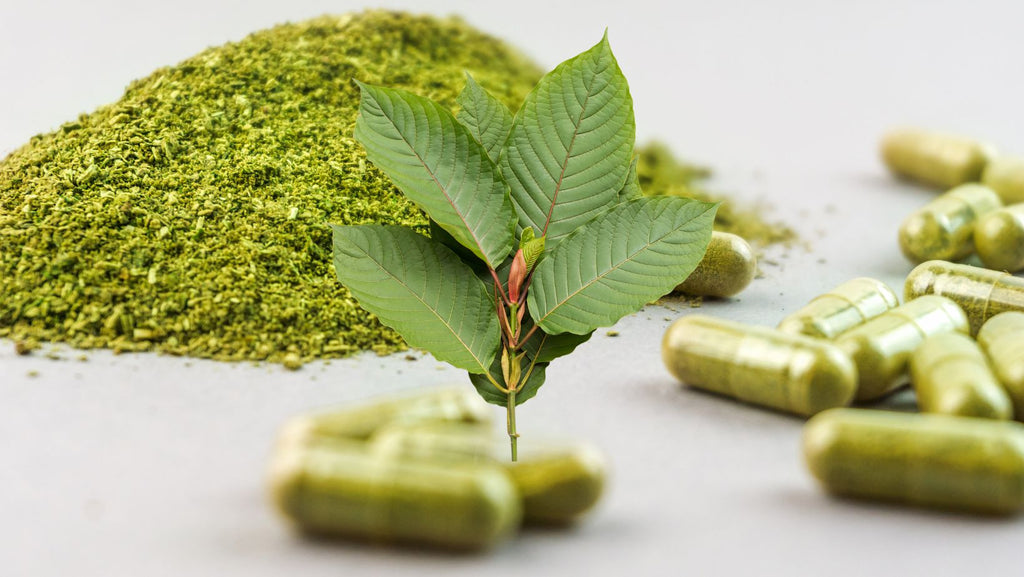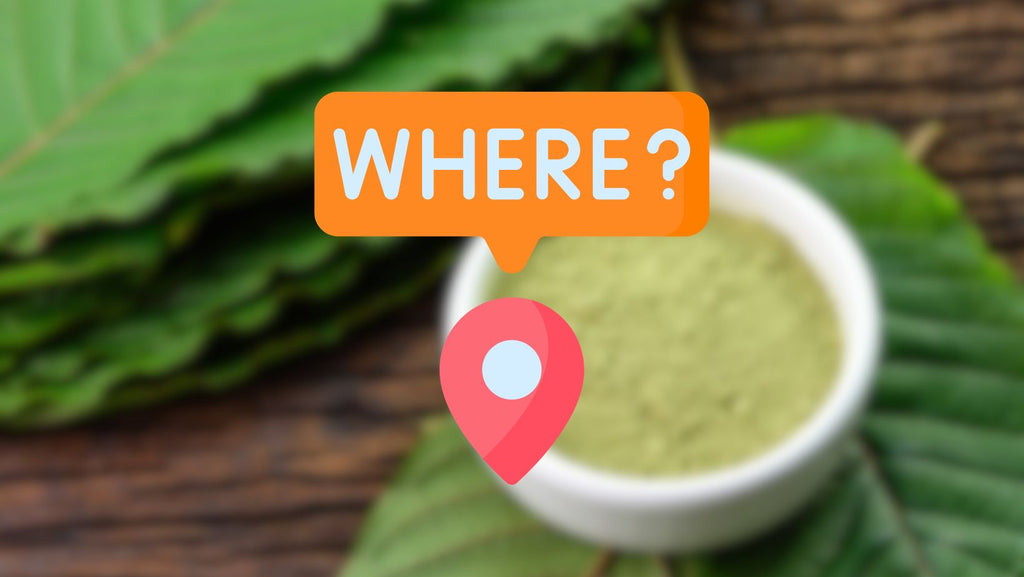
Is Kratom Legal in Colorado? Full Facts
Explore the legality of Kratom in Colorado, including where to buy and regulations, ensuring informed and safe consumption.
Introduction to Kratom's Legal Status in Colorado
Kratom, known scientifically as Mitragyna speciosa, has been the subject of much debate across the globe, including in the United States. In Colorado, the conversation around Kratom touches on its benefits, risks, and the appropriate legal framework for its regulation.

The substance, used traditionally in Southeast Asia for its stimulant and pain-relieving properties, has found a varied audience in Colorado—from those seeking alternative treatments for pain and addiction to individuals looking for a boost in energy or mood. This introduction aims to unpack the complexities surrounding Kratom’s legal standing in the state, providing a grounded starting point for understanding its current status and implications for residents.
The legal landscape of Kratom in Colorado mirrors the substance's broader national debate, characterized by a patchwork of regulatory responses. While federal authorities grapple with Kratom's classification and potential health implications, Colorado's approach has been more nuanced, focusing on localized decisions and public health considerations.
This variance highlights the importance of delving into the specificities of Kratom’s legal status within Colorado, setting the stage for a deeper exploration of how law, public health, and consumer safety intersect in the context of this unique and controversial plant.
Is Kratom Legal in Colorado?
Kratom is legal in Colorado, with the state adopting a relatively permissive stance towards the substance compared to some of its neighbors. This legality, however, comes with caveats and exceptions, notably in Parker Town and Monument Town, where local ordinances have banned Kratom.
The state’s approach reflects a broader hesitation to fully embrace or outright ban Kratom, instead opting for a middle path that allows for its use while acknowledging the ongoing debates surrounding its safety and efficacy. For residents and consumers within Colorado, this means access to Kratom is largely unfettered, though they must navigate the specific restrictions that may apply in their locality.
This legal status does not imply an absence of regulation, however. Colorado has put measures in place to ensure the safety of Kratom sold within its borders, including regulations aimed at preventing the sale of adulterated or otherwise unsafe products. These regulations serve a dual purpose: protecting consumers from potential harm and providing a framework within which vendors can operate legally.
Despite these safeguards, the evolving nature of Kratom's legal and regulatory status requires both vendors and consumers to stay informed about current laws and guidelines, underscoring the dynamic relationship between public policy and public health in the context of Kratom use.
Understanding Colorado's Kratom Laws
Colorado’s legislative framework regarding Kratom is designed to strike a balance between safeguarding public health and respecting individual freedom of choice. The state has not enacted a blanket ban on Kratom, instead allowing its sale and use while implementing specific regulations to curb potential risks associated with its consumption.
These regulations focus on ensuring product purity and consumer safety, prohibiting the sale of Kratom products that are adulterated or misbranded. Such measures are indicative of a cautious yet open approach to managing Kratom, reflecting a recognition of its potential benefits alongside concerns about its risks.

The legal nuances of Kratom in Colorado also extend to its retail landscape. Vendors are required to adhere to state guidelines that dictate how Kratom can be marketed and sold, including clear labeling requirements and restrictions against selling to minors in certain jurisdictions.
This regulatory environment creates a framework within which consumers can make informed decisions about Kratom use, emphasizing the importance of transparency and accountability in the Kratom market. As discussions around Kratom continue to evolve, both at the state and national levels, these laws may be subject to change, highlighting the need for ongoing engagement and dialogue among stakeholders in the Kratom community.
|
Aspect |
Detail |
|
Sale and Use |
Kratom is legal; no blanket ban. |
|
Product Purity |
Regulations ensure products are not adulterated or misbranded. |
|
Consumer Safety |
Measures in place to protect consumers from potential risks. |
|
Marketing and Sales |
Clear labeling required; restrictions on sales to minors. |
|
Transparency |
Guidelines promote informed consumer decisions. |
|
Accountability |
Vendors must adhere to state guidelines. |
|
Regulatory Change |
Laws may evolve with ongoing Kratom discussions. |
Kratom's Legal Status in Colorado vs Other States
Kratom's legal status varies widely across the United States, with Colorado maintaining a relatively permissive stance. In Colorado, Kratom is legal except in a few municipalities, reflecting a broader tolerance for the substance compared to some other states.
This contrasts with places like Alabama and Indiana, where Kratom is completely banned, and others like Tennessee and Nevada, which have specific regulations to ensure the purity and safety of Kratom products.
The differences in legal status across states highlight the absence of a uniform federal guideline on Kratom, leading to a patchwork of laws that range from outright bans to regulated legal status.
While Colorado allows for the use and sale of Kratom with certain local exceptions, other states have enacted more stringent controls or outright prohibitions, indicating the varied approaches to handling Kratom's availability and perceived risks.
Where You Can Obtain Kratom Legally in Colorado
In Colorado, the availability of Kratom is reflective of the state's liberal stance, with options ranging from local specialty stores to online vendors. Among these options, online platforms such as Choice Botanicals offer a convenient and diverse selection of kratom products, including kratom powders, kratom capsules, and kratom shots. This accessibility underscores the importance of responsible consumption and vendor compliance with state regulations for safety and quality.

For those in Colorado looking to explore the benefits of Kratom, it's crucial to prioritize sources that adhere to high standards of product quality and transparency.
Online vendors like Choice Botanicals facilitate informed choices by providing detailed information on their Kratom offerings, allowing consumers to partake in the Kratom community confidently and safely.
Kratom Usage in Colorado: What You Need to Know
Kratom users in Colorado enjoy the flexibility to engage with the substance in a variety of ways, thanks to the state’s legal stance. Whether seeking Kratom for its stimulant effects at lower doses or its analgesic properties at higher doses, individuals have the opportunity to explore its potential benefits.
However, this freedom comes with the responsibility to use Kratom safely and judiciously. Given the variability in Kratom's effects, which can differ based on strain, dosage, and individual physiology, users are encouraged to start with lower doses to gauge their reactions. Moreover, while many find Kratom useful for managing pain, fatigue, or anxiety, it's important to approach its use with an understanding of the potential for dependence and side effects, particularly with prolonged or heavy use.
Educating oneself on the safe use of Kratom is paramount for Colorado residents. This includes staying informed about the latest research, understanding the signs of misuse, and recognizing when to seek help if Kratom use becomes problematic. Engaging with the Kratom community, whether through online forums, local support groups, or advocacy organizations, can provide valuable insights and support for responsible use.
Additionally, considering the ongoing debates and research surrounding Kratom's efficacy and safety, individuals are urged to approach its use with an open mind and a critical eye, prioritizing personal health and wellbeing in their decisions.
Shipping Kratom to & From Colorado
Shipping Kratom to and from Colorado involves navigating a complex interplay of state and federal regulations, carrier policies, and the legal status of Kratom in the destination or origin location outside Colorado. Given Colorado's legal stance on Kratom—where it is legal with the exception of certain municipalities—it's possible to ship Kratom to most locations within the state.
However, when shipping Kratom out of state, it's crucial to be aware of and comply with the legal status of Kratom in the destination state or country. The legal variability across jurisdictions means that individuals and businesses must exercise due diligence to ensure compliance, avoiding areas where Kratom is banned or regulated differently.

Carriers also have policies in place regarding the shipment of Kratom. Major shipping companies may have restrictions or guidelines specific to Kratom, reflecting their corporate policies or their interpretation of federal laws and regulations concerning controlled substances. Before shipping Kratom, it's advisable to consult with the carrier to understand their policies and ensure that your shipment complies.
Failure to adhere to these guidelines can result in confiscated shipments, fines, or other penalties. Ensuring compliance not only with legal statutes but also with carrier policies is essential for smooth and legal transport of Kratom to and from Colorado.
Key Considerations for Shipping Kratom to & From Colorado:
- Legal Status: Ensure that Kratom is legal in both the origin and destination locations. Remember that legality can vary significantly, even within states.
- Carrier Policies: Check with shipping carriers for any specific policies or restrictions on Kratom. Some carriers may not accept Kratom shipments due to its controversial status.
- Packaging and Labeling: Properly package and label Kratom shipments to comply with state laws and carrier requirements. Clear labeling can help avoid delays or confiscation.
- Documentation: Include any required documentation that verifies the legality and contents of the shipment. This might include lab reports or certificates of analysis.
- Local Ordinances: Be aware of and comply with local ordinances in Colorado municipalities that might have specific restrictions on Kratom.
- Age Verification: Some states have age restrictions on the purchase and use of Kratom. Ensure that shipments comply with these age requirements.
- Stay Informed: Regulations around Kratom are subject to change. Regularly update your knowledge on both the legal landscape and shipping policies to ensure ongoing compliance.
The Future of Kratom in Colorado
The future of Kratom in Colorado, as in much of the United States, remains uncertain, subject to the evolving landscape of research, public opinion, and legislative action. Ongoing studies into Kratom's pharmacology, potential benefits, and risks will continue to inform the regulatory conversation, potentially leading to adjustments in how the substance is classified, sold, and used.
Advocacy and opposition groups alike are actively engaging in the dialogue around Kratom, each pushing for policies they believe will best protect public health while respecting personal freedoms. As these discussions unfold, it's possible that Colorado could see changes to its Kratom laws, reflecting new insights or shifts in public sentiment.
For those interested in Kratom's legal status and use in Colorado, staying informed is crucial. This means keeping abreast of not only state-level regulations but also federal developments and scientific research that could influence local policies.
Whether through active participation in advocacy efforts, ongoing education about Kratom, or simply by being an informed consumer, individuals have the opportunity to contribute to the conversation around Kratom in meaningful ways. As Colorado navigates the complexities of Kratom regulation, the input and engagement of the community will be invaluable in shaping a future that balances the diverse interests and concerns surrounding this unique botanical.
Some Common FAQs
Q: Can I travel with Kratom within Colorado?
Yes, you can travel with Kratom within Colorado, except to areas like Parker Town and Monument Town where local bans exist.
Q: Are there any restrictions on the amount of Kratom I can purchase in Colorado?
Colorado does not impose a state-wide limit on the amount of Kratom you can purchase, but it's wise to buy only what you need for personal use.
Q: Do I need a prescription to buy Kratom in Colorado?
No, you do not need a prescription to buy Kratom in Colorado, as it is legal for over-the-counter purchase.
Q: Can Kratom be consumed in public places in Colorado?
While there's no specific state law against consuming Kratom in public, discretion is advised, and local ordinances should be respected.
Q: Is it legal to grow Kratom plants in Colorado?
There are no specific laws prohibiting the cultivation of Kratom plants in Colorado, but given the plant’s tropical nature, growing it successfully might be challenging.
Q: How old do I have to be to purchase Kratom in Colorado?
There is no state-wide age restriction for purchasing Kratom in Colorado, but some local vendors may impose their own age limits.
Q: Can I sell Kratom products in Colorado without a special license?
While Colorado allows the sale of Kratom, vendors must comply with state regulations regarding safety and quality. It's advisable to check with local authorities about any specific licensing requirements.
Conclusion: Staying Informed About Kratom in Colorado
Navigating the legal landscape of Kratom in Colorado requires a balance of personal responsibility, community engagement, and ongoing education. While the state offers a relatively permissive environment for Kratom use, the nuances of its legal status and the importance of safe consumption practices cannot be overstated.
Individuals looking to Kratom for its potential benefits must also be mindful of the responsibilities that come with its use, including adhering to local regulations, selecting reputable sources, and being attentive to personal health and safety.
As Colorado continues to evolve its stance on Kratom, staying informed and engaged will be key for those who use it, sell it, or simply advocate for its legal access. The future of Kratom in the state will undoubtedly be shaped by a combination of scientific research, legislative developments, and the voices of the Kratom community.
By participating in this evolving dialogue, Colorado residents can help ensure that the state’s approach to Kratom remains balanced, informed, and responsive to the needs and concerns of all stakeholders involved.
Share

